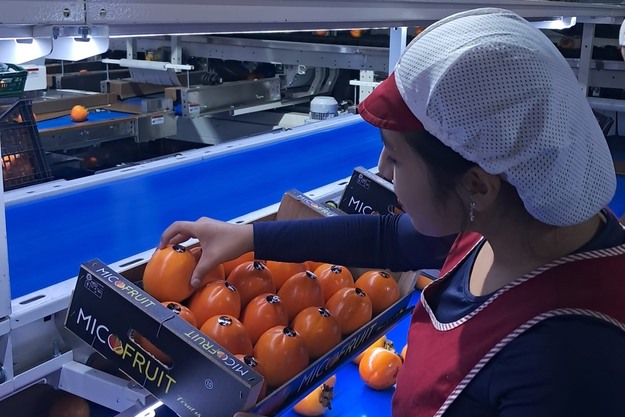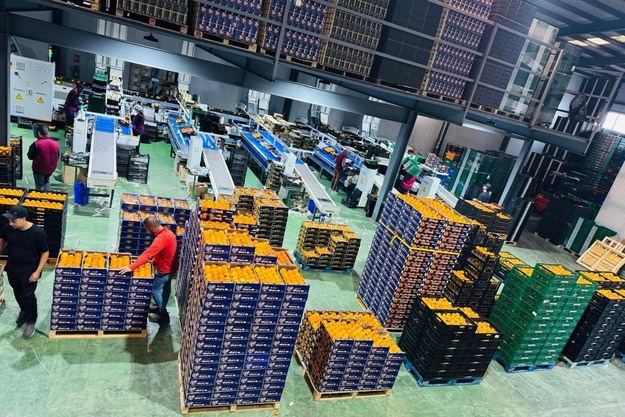Where November is normally characterized as the best month for Spanish Rojo Brillante, persimmons, this year the season literally treading water. "The beginning of the season was actually very prosperous with good demand and nice prices, but the severe weather that struck in the Valencia region on Tuesday is really catastrophic," says Flemish Sharon Veroone, who works at Spain's Micofruit.

The Valencia-based company is now run by its third generation. "The first generation started Micofruit by selling homegrown fruit locally at the market. His son then decided to expand marketing to the entire Spanish market, after which the third generation wanted to take the step to internationalization," Sharon explains. Today, Micofruit specializes in growing and packing persimmons, bottle pumpkins, and stone fruit, which are then delivered throughout Europe. "We also export to the United Arab Emirates and Canada," she says.
"However, the biggest product group is persimmons, specifically the Rojo Brillante," she continues. "This is where we have started about a month now and beforehand things actually looked very rosy. The expectation was that there would be good volumes, but we had to deal with pests such as cotonet and trip, which plagued the fruit, so there have still been fairly large losses in the field. In addition, it was dry for a very long time, resulting in lower calibers than other years. The combination of these meant that this year's kilos were still significantly lower than hoped."

"Add to that the costs in the field were a lot higher, because the fruit had to be treated to control the pests, and the result is that the run-up to the season was still more laborious than initially thought," Sharon says. "Nevertheless, after the start of the season, the momentum came in. Indeed, despite the challenges in cultivation, there was huge demand from the European market. This then ensured good prices. Until last week, when very large numbers of persimmons suddenly entered the market, prices then started dropping remarkably."
Persimmon season literally in the water due to severe weather
And then the severe weather hit the Valencia region. "As indicated, November is normally the best month for our persimmons. Until we were told over the weekend that a storm was forecast, which caused a lot of problems from Tuesday onwards. If you see the images, it is catastrophic. We get constant alerts from the government here that we should absolutely not go out and this was still happening until yesterday."
A look at the fields shows the havoc
"Tuesday was really the focal point though," she continues. "What the impact will be on our fields remains to be seen. Until the storm subsides, we can't see what the damage is effectively either, but we do expect it to be substantial. It is, of course, very localized. We have fields all over the region, so it will vary from field to field. So for now, we have to wait for it to stop. They say it will continue until today. The rain will stay for a while, but the storm then seems to be over its center of gravity, if I am to believe it."
It is a bitter pill for the company, which was looking ahead to a nice kaki season. "It is a case of seeing what the coming weeks/months will look like. Last weekend, like many, we tried to get as much fruit into the warehouses as possible in preparation for the rains. Those fruits are what everyone is selling now, but in the coming time, the market will slowly but surely run out. Many fields are completely flooded, so even if it stops now, nobody will be able to get into the fields. It will have to dry, so we will be working with large shortages for the coming period. As a result, prices will go up again, but what happens next, I don't dare predict yet. Normally we continue with the persimmons until January, but now we remain in anxious anticipation."
For more information:
Sharon Veroone
Micofruit![]()
Tel: +34 650 84 77 45
[email protected]
www.micofruit.es
